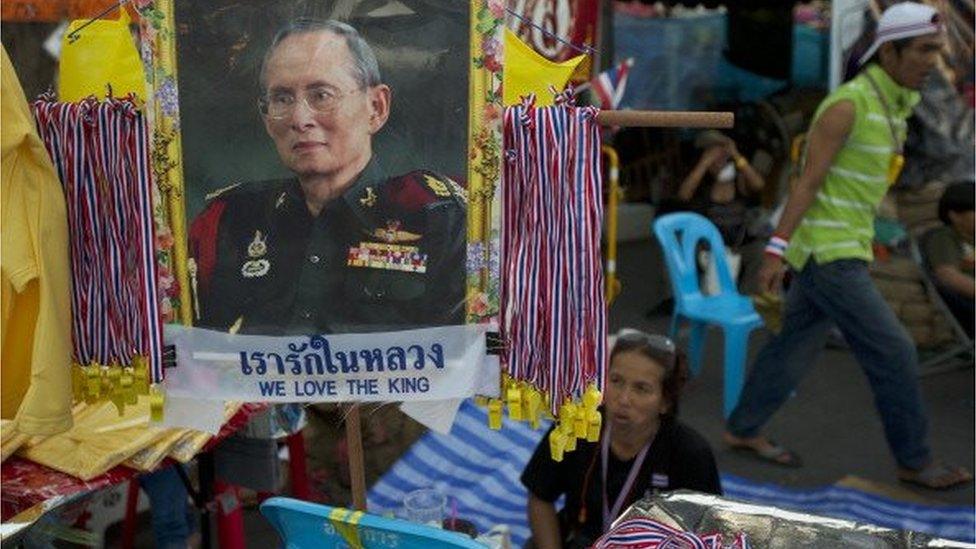Thai King Bhumibol's health not stable, palace says
- Published

The king has received treatment for a variety of ailments in recent years including a build up of fluid surrounding the brain and a swollen lung
The health of Thailand's King Bhumibol Adulyadej is "not stable", palace officials have said.
King Bhumibol, 88, is the world's longest reigning monarch, but has spent much of the last year in hospital and is rarely seen in public.
He is widely revered in Thailand, where he is seen as an arbiter in the divided political arena.
His doctors said they had now sought formal permission for the king to stop performing any official duties.
Thailand marks 70 years of king's reign
The palace statement, released late on Sunday night, said the king's blood pressure had dropped as he was being prepared for haemodialysis, a procedure used to treat kidney failure.
These women, holding portraits of the king above their heads as a sign of respect, were among those gathered outside the hospital on Monday
He was placed on a ventilator and medication helped return his pressure to normal levels, it added. Doctors are now monitoring his condition closely.
Strict laws
King Bhumibol has been on the Thai throne since 1946.
Amid increasing concerns about his health in recent months, the Royal Household Bureau has issued more frequent bulletins.
Earlier this month, a statement said the king was recovering from a respiratory infection.
But the BBC's South East Asia correspondent Jonathan Head says that this is the first time doctors have sought permission for him to stop working, suggesting that perhaps the palace is considering transferring some of his formal duties to his heir, Crown Prince Vajiralongkorn.
Given the pivotal role the king has played in maintaining the balance of power in Thailand's volatile political environment, the succession will be a formidable challenge for the military government, our correspondent adds.
Thailand's strict lese majeste laws mean public discussion of his health and succession plans are not permitted, and punishable by lengthy jail terms.
- Published9 June 2016
- Published15 December 2015
- Published6 October 2017
- Published19 May 2015